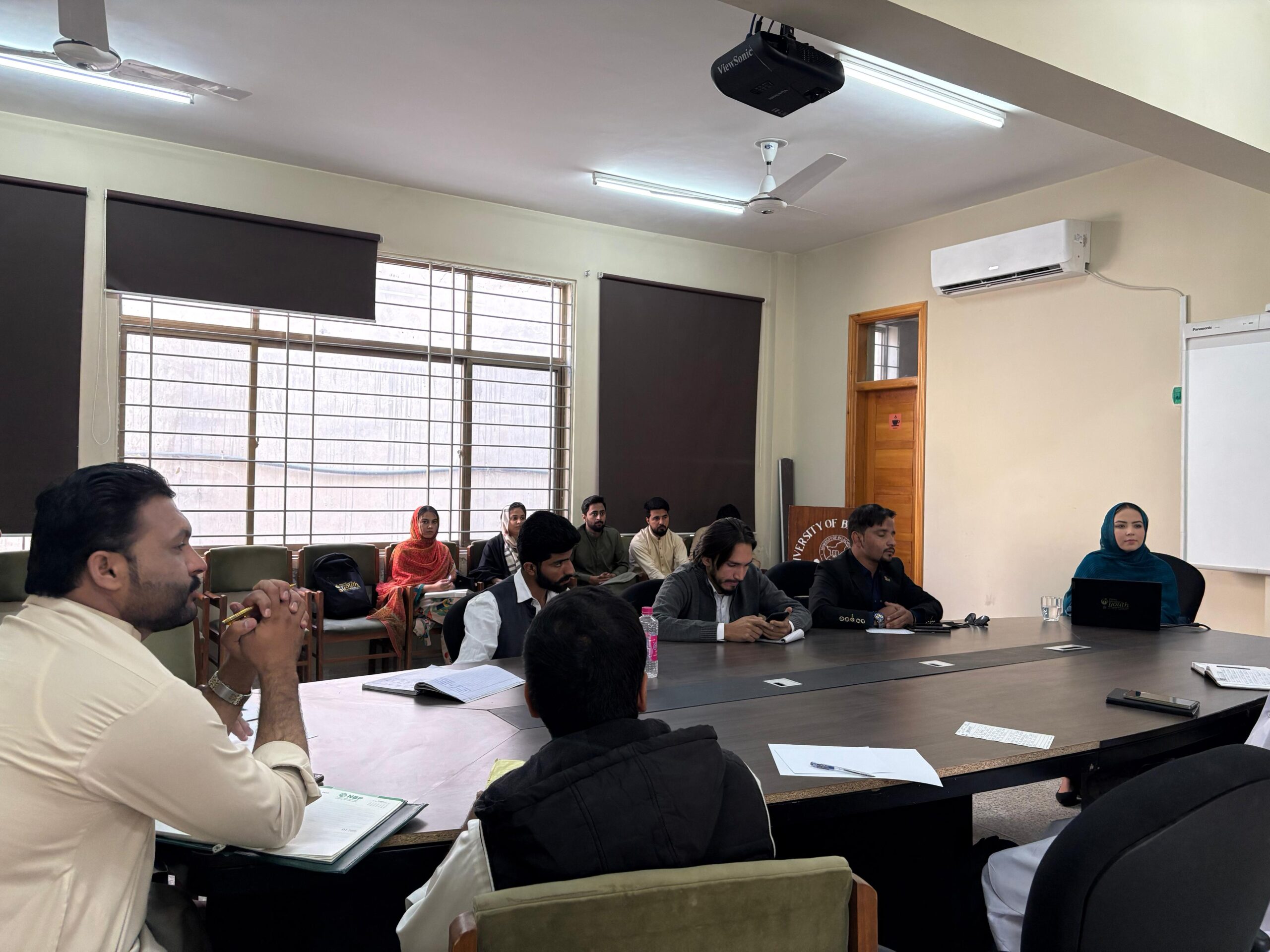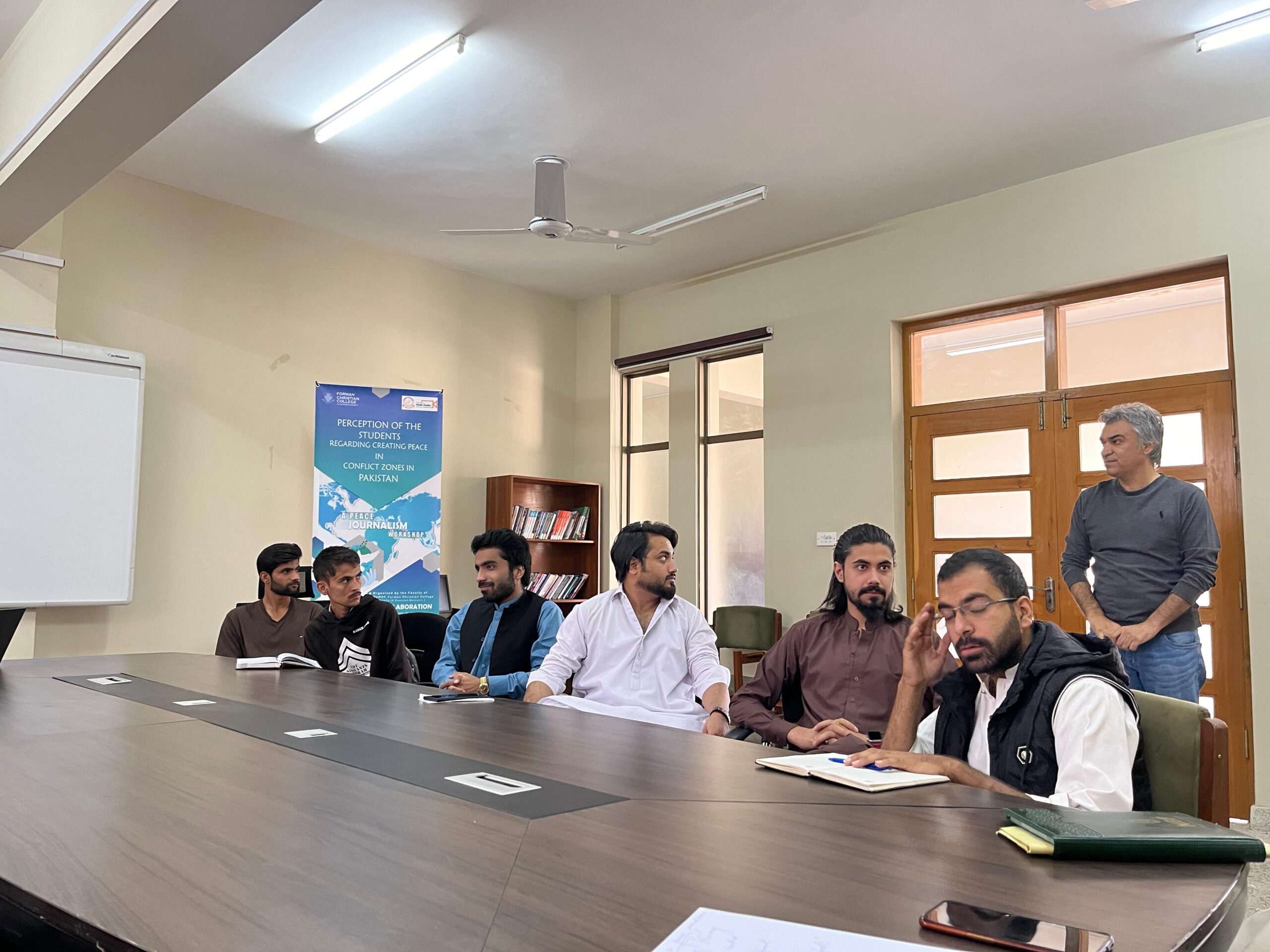One day workshop on “Perception of the students regarding creating peace in conflict zones in Pakistan” at Media Studies Department, University of Balochistan.
One day workshop on “Perception of the students regarding creating peace in conflict zones in Pakistan” at Media Studies Department, University of Balochistan.
The training was led by Farida Gul Hazara one of gold medalist student of the department where as the inputs by the Media Studies Department Chairperson Prof. Dr. Babrak Niaz Sb, faculty member Malik Achakzai and the brilliant lot of diverse students from different districts of the province.
While at the workshop the students planned their future stories on “peace” to spread diversity, pluralism and interactivity for the cause of public interest.
The workshop was organized in collaboration with the FCCU University Lahore and Oslo Met University.
Peace Journalism is the area of journalism where we should keep focused on human interests, pluralism, inclusivity, diversity and peace for the masses. “A roast making video gets more viewers than other contents mean public is ready for peace, they love life and we should report it”, says Farida Gul Hazara. “I am myself from the Hazara community and trust me the militancy reporting alone hurdle the way of peace, we should cover something other than death, hatred, political narrative based on conflict causing ideologies, we humans are children of Adam and Eve no matter how much we keep away from each other, we need to struggle to exchange conflict with peace, see we are from different ethnic, sectarian and social grounds, but peace journalism make us united in this room”.
Peace come through public voices heard, we journalists should remain focused on public voices for peace, the powerful elites divide public with different titles, and we should keep them united irrespective of man made divisions told Farida Gul Hazara one of the active journalist and gold medalist student of the Media Studies Department University of Balochistan.
“People are logical they’re one when they’re given chance to exchange their ideas. When we keep them away through one-sided information and we use hate-speech to categorize them on the basis of hatred raised banners, conflict starts”, says Prof Dr Babrak Niaz Nasar, chairperson of the Media Studies Department, University of Balochistan, Quetta. “University students should have opportunities to cover the positive sides as well here in a conflict region we always hear about escalated violence but we do not see the positive happening among the public”.
Maryam Aman, 20, female student of the Media Studies Department told that it was the first activity she attended on a new approach to journalism where journalists are trained to work on something different than war alone. “We are fed up of the war and bomb blasts. We used to think that journalism is only war stuff, now we should utilize our energies for peace promoting journalism”.
The students shared their inputs regarding women journalist role in the field where only men cover conflict. “Women and girls are having enough energies to cover different issues in the society, and women can play more role in peace journalism than men can do”, says Aruba Shezad, 21, a female student of the 7th semester.
Another student Bismillah asked isn’t it a bit odd to cover everything positive while bad happens a lot in conflict impacted areas?
He was responded by the trainer, “everything should get recorded whether positive or negative with an aim and agenda that brings the people together without discrimination on the basis of ethnicity, beliefs and gender, as at the end of the day we are all humans and we all need peace that is what make peace journalism an approach to push the conflicting parties come to a logical conclusion of their differences without armed attacks, and peace is always the public agenda and we as journalists should promote it through peace journalism”.
Farid Khan, 23, said that the universities and Media Studies Departments in Balochistan needs to train the young lot on peace journalism as the province has been through the worse of militancy, war and destruction. “Now it is time to push peace and harmony related stories to our audience”.
At the end of the session Professor Dr Babrak Niaz Nasar appreciated the trainers, collaborators and the students participants with a hope that they go for serving the society with fact based journalism in an era of, “fake news, unverified data, propaganda, one sided story telling”. He told it is sad aspect of the conflict where truth become its first victim. Balochistan and rest of the country is needy to get portrayed through conflict resolution lenses as well.




Comments are closed.